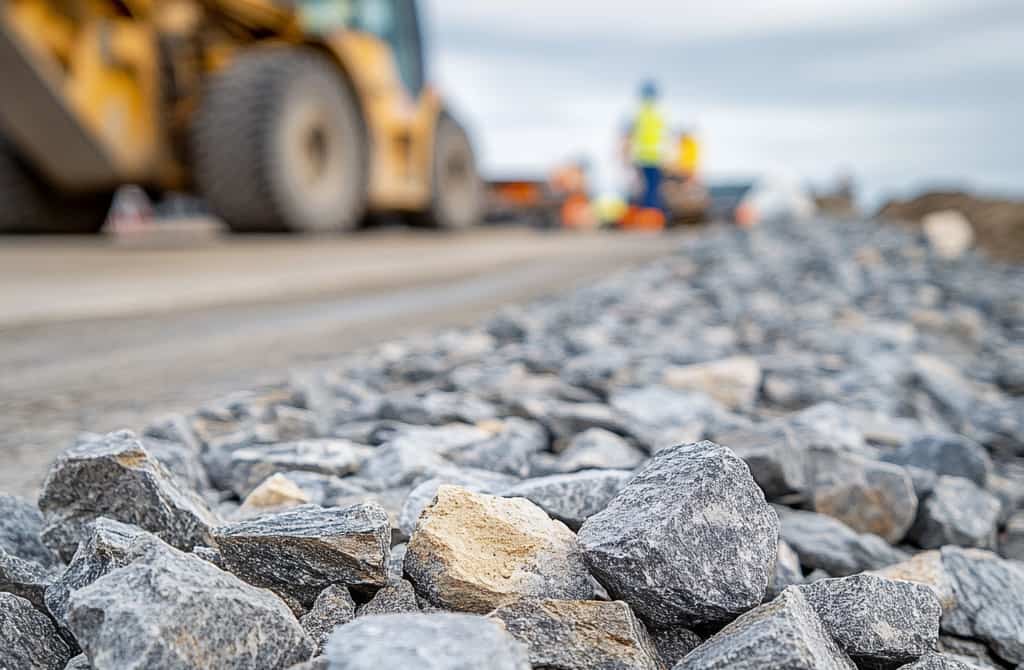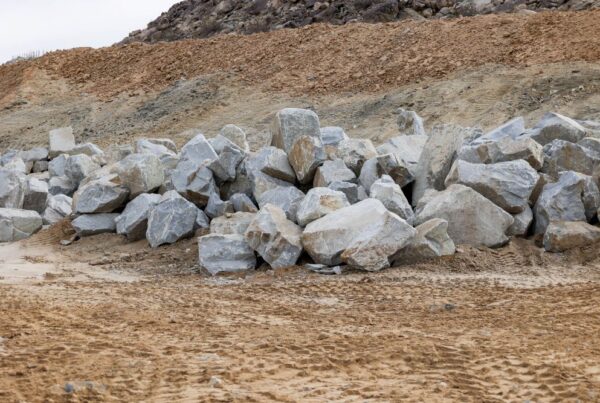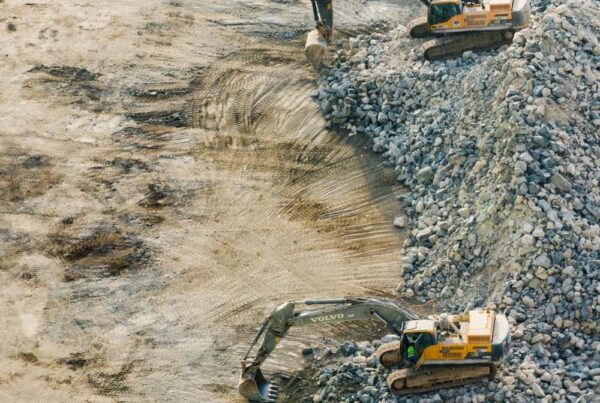When we think of construction, we tend to picture the grand, visible things—cranes swinging, concrete mixers turning, and the finished buildings on the cityscape. But beneath it all, hidden from view and rarely appreciated, are the materials that actually make it possible. These are the construction aggregates.
Things like gravel, sand, boulders, and crushed stone—those quiet, sturdy essentials that form the literal foundation of every structure. Without them, we wouldn’t have the roads we drive on or the homes we live in.
What Exactly Are Construction Aggregates?
Aggregates are natural materials that have been used in construction for centuries. And when we talk about construction aggregates, we’re referring to things like boulders, gravel, sand, and crushed stone—each of them playing a unique role in ensuring buildings and roads stand firm and last.
Aggregates fall into two categories:
- Coarse aggregates: These are your bigger, more robust materials, like boulders, gravel, and crushed stone.
- Fine aggregates: Think of the smaller stuff like sand and fine gravel that fill the gaps and provide that extra layer of stability.
Each type has its own purpose. Knowing which one to use is key to making sure you’re building on solid ground—literally and figuratively.
How Aggregates Hold Everything Together
Let’s take a moment to appreciate what each of these materials does because they are what give our roads and buildings their strength. Without them, everything would crumble—literally.
- Boulders: Big heavy stones play an essential role in large infrastructure projects like bridges, retaining walls, and erosion control. They’re the weight and strength that hold things together when everything else might shift or slide away.
- Gravel: Gravel is versatile. It is the workhorse. It’s used for everything from driveways to roads, drainage systems, and foundations. It has a rough, interlocking texture that makes it stable, especially for load-bearing structures. Gravel is one of those essentials that you might not think about until it’s missing, but once it’s there, it holds everything in place.
- Sand: Sand fills in the spaces between the bigger aggregates, helping create a compact and stable surface. It’s used in everything from concrete to mortar, and it works behind the scenes to make sure everything holds together. It’s the kind of material that quietly does its job without asking for recognition, and yet everything would fall apart without it.
- Crushed Stone: Crushed stone is the solid foundation made by breaking down larger rocks into various sizes. Its sharp edges help it compact tightly, making it the cornerstone of most construction projects. You’ll find it everywhere—from the base layers of roads to the foundation of buildings.
Where Do Construction Aggregates Come From?
All these materials come from quarries—those large open-pit mines where natural rock deposits are extracted and processed. A local rock quarry in Southern California like Lynx Cat Mountain Quarry could be your best bet for sourcing high-quality aggregates, cutting down on transportation costs, and supporting local businesses.
Why Choose a Local Rock Quarry?
There are a few solid reasons why sourcing your aggregates from a local quarry makes sense:
- Quality Control: Quarries control the entire production process, so you can trust that the materials meet the necessary standards.
- Cost-Effective: Buying directly from the source cuts out the middleman, which often saves you money.
- Reduced Environmental Impact: Local sourcing means less fuel consumption and a smaller carbon footprint.
- Variety: From large boulders to fine sand, quarries have all the materials you’ll need in one place, making your life easier.
Building Stability, One Aggregate at a Time
Just as aggregates provide the foundation for roads and buildings, the smallest, often unnoticed things in life hold up the bigger structures.
Whether it’s a construction project or something more personal like the journey toward recovery, it’s the basics that give us stability. The support systems you build—whether physical or emotional—are what allow everything else to stand tall.
A Quick Recap of Aggregate Types
- Boulders: Provide strength and stability for large projects.
- Gravel: Versatile and essential for roads, foundations, and drainage systems.
- Sand: Fills in the gaps and holds everything together in concrete and mortar.
- Crushed Stone: Solid, compact, and a reliable foundation for any project.
Build with Confidence
If you’ve got a construction project in the works and need the right materials to make sure it lasts, look no further than Lynx Cat Rock Quarry in Southern California. Whether you need boulders, gravel, sand, or crushed stone, we’ve got everything you need to build with confidence.
Reach out to us today and let’s talk about what your project requires. A solid foundation is the key to long-term success, whether it’s in construction or in life, and the materials you choose matter. Let’s make sure you’re building with the best. Call Today: 760-760-5969.




